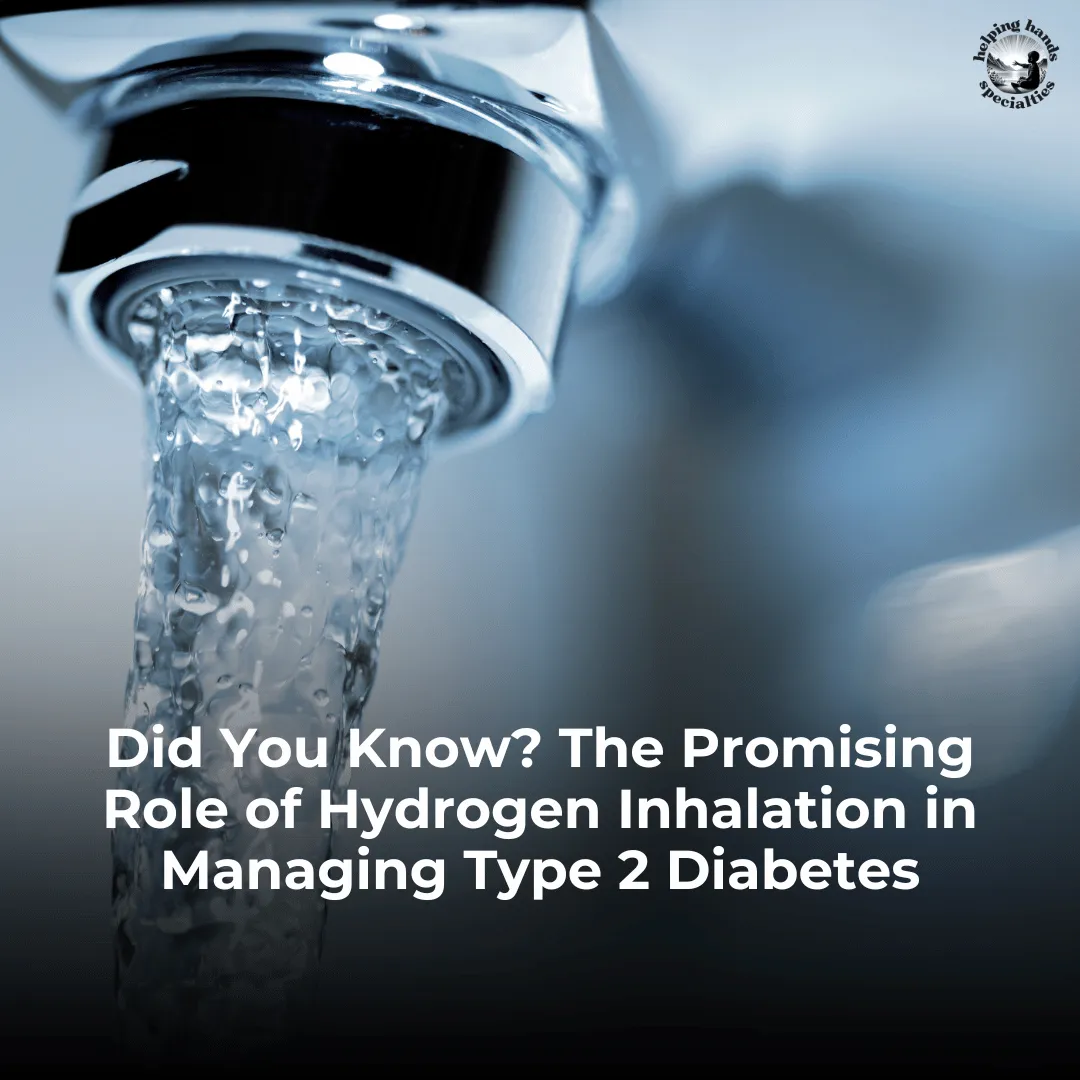Browse the Latest from Helping Hands Specialties Blog


Did You Know? The Promising Role of Hydrogen Inhalation in Managing Type 2 Diabetes
Type 2 diabetes affects millions of people worldwide, making the quest for effective treatments more critical than ever. Recently, a groundbreaking study from China has shed light on an innovative approach that might just change the game for many struggling with this chronic condition. Let's dive into the world of hydrogen inhalation therapy and explore how it can offer a new ray of hope.
A Fresh Breath of Hope

Hydrogen inhalation (HI) therapy isn't something most people talk about daily, especially in the context of diabetes management. However, this method, involving the inhalation of hydrogen gas, has shown promising results in a recent study conducted by a dedicated team from Qingdao University and other prestigious institutions in China. But what makes this therapy stand out, and how can it benefit those living with type 2 diabetes?
Understanding the Science

The study focused on evaluating the effectiveness and safety of HI as an additional treatment for patients already on conventional diabetes medications. Over six months, the researchers observed significant improvements in patients who added hydrogen inhalation to their routine. These improvements included better control of blood sugar levels, enhanced lipid metabolism, and reduced insulin resistance. Essentially, patients who underwent HI therapy were better at managing both sugar and fat in their blood, leading to a healthier state overall.
Real-World Benefits

One of the study's key strengths is its reflection of real-life scenarios. Unlike research conducted in highly controlled environments, this study offers insights into how HI therapy could be integrated into the daily lives of those with diabetes, providing meaningful and attainable benefits.
Safety First

When it comes to new treatments, safety is always a top concern. The researchers reported that hydrogen inhalation was not only effective but also safe. Participants in the HI group experienced fewer adverse events such as hypoglycemia, vomiting, and dizziness compared to those who did not use the therapy. This aspect is particularly encouraging, suggesting that HI therapy could be a viable option for many patients.
Why Hydrogen?

Hydrogen is known for its selective antioxidant properties, meaning it can neutralize harmful molecules in the body without affecting beneficial ones. This ability makes it highly effective at reducing oxidative stress, a key factor in diabetes complications. By inhaling hydrogen gas, patients can directly combat oxidative stress, leading to improved health outcomes.
A Global Perspective

While the study's findings are indeed promising, it's important to remember that it focused on a specific population. Diabetes manifests and progresses differently across various demographics, influenced by diet, lifestyle, and genetic factors. Thus, further research in diverse populations is necessary to fully understand the global applicability of HI therapy.
The Takeaway
The exploration into hydrogen inhalation therapy brings us closer to finding more effective and safe treatments for type 2 diabetes. It's a testament to the power of scientific innovation and the potential for new solutions to emerge. For those living with diabetes or caring for someone who is, staying informed about such advancements could pave the way for better health management strategies.
As we continue to navigate the complexities of diabetes treatment, let's remain open to learning and embracing novel approaches. After all, knowledge is the first step toward empowerment and change. Did you know about hydrogen inhalation therapy before today? It might just be the next big thing in diabetes care, offering a brighter, healthier future for many.
If you would like to start your health journey with hydrogen, click the link below and get your body what it deserves!
Shop now, free shipping + use "HHS" code for discount:
https://healthyhydration.com/products/hydra-deluxe?ref=T6Z70EM_uvFRiG
References:
https://www.frontiersin.org/journals/endocrinology/articles/10.3389/fendo.2022.1114221/full
https://pubmed.ncbi.nlm.nih.gov/36743938/
https://www.frontiersin.org/journals/endocrinology/articles/10.3389/fendo.2022.1114221/full
Get In Touch

